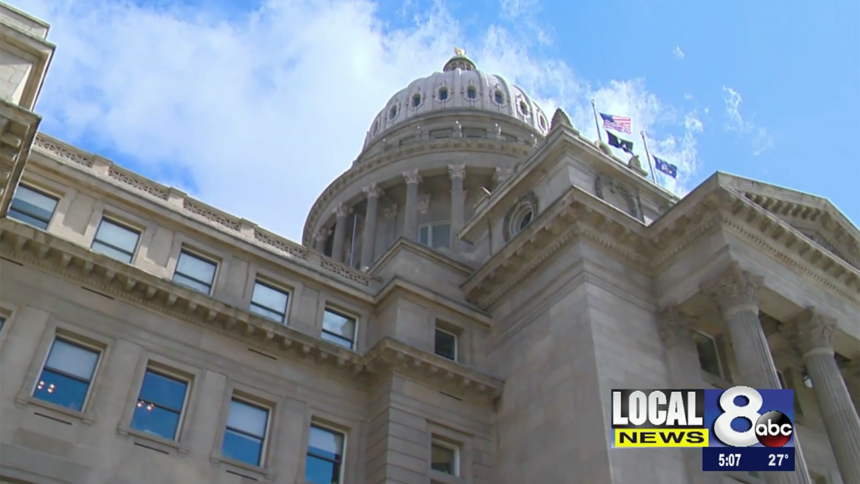Idaho lawmakers seek options for calling special sessions

BOISE, Idaho (AP) - Lawmakers concerned that Republican Gov. Brad Little has too much power following his emergency declaration because of the coronavirus pandemic considered on Monday ways to reconvene after the regular legislative session has ended.
Draft legislation pitched to the State Affairs Working Group would require the governor to call the part-time Legislature back into session whenever the governor makes an emergency declaration.
Lawmakers are also considering a constitutional amendment allowing lawmakers to call themselves back into session if that's what a majority of lawmakers want. Such an amendment would have to be approved by voters.
The working group didn't make any policy votes, but instead considered potential legislation for the 2021 Legislature.
Idaho's first recorded infection came on March 13, and just three weeks later, on April 4, Idaho had 1,000 infections. Little took decisive action, issuing an emergency declaration on March 13 and a stay-at-home order on March 25 after community spread was confirmed first in Blaine County and then in highly-populated Ada County, which includes Boise. Community spread is when it's not clear how a person became infected.
Little extended the stay-at-home order to April 30, and the state has since been working through a four-stage reopening that has stalled with a sharp increase in infections. Little also turned the May primary into a vote-by-mail-only primary, a first for Idaho.
Some businesses have had to shut down under Little's order, and the state has taken a huge economic hit due to that as well as consumers being too afraid to venture into the marketplace.
Congress and President Donald Trump in March approved the $2.2 trillion Coronavirus Aid, Relief, and Economic Security Act. Idaho received $1.25 billion, a significant sum for the state that in the fiscal year that just ended generated a little over $4 billion in revenue.
Little, with advice from committees he's formed that include lawmakers, has directed where the money goes. Several lawmakers said they didn't necessarily disagree with the actions Little has taken in dealing with the pandemic, but that one person shouldn't have that much power.
"We've not been part of the process," said Republican Rep. Jason Monks, the assistant majority leader. "I'm not necessarily as concerned about the results as I am about the process. There could be a very different person occupying that office."
The Legislature wanting an option to reconvene is "not to tie (Little's) hands, it's just for the Legislature to be more involved," said Republican Senate Majority Leader Chuck Winder.
Virus infections in Idaho have been soaring in recent weeks. Johns Hopkins University says the state has nearly 15,000 infections and 119 deaths due to the virus through Sunday.
And the 14-day trend for the percentage of people testing positive for COVID-19 on Monday was at 18.2%, according to The COVID Tracking Project. The positivity rate is a measure of how widespread the disease is in the community, and Idaho guidelines say that number needs to be under 5% to lift restrictions.
Lawmakers during the day-long took part remotely while others were in the room in the Statehouse. The committee also allowed remote testimony. It could be a precursor of the 2021 Legislative session where lawmakers heard proposals about moving Senate desks farther apart to meet social distancing guidelines and moving half of the House members into a separate room to meet social distancing guidelines. There are 35 senators and 70 representatives, and Republicans hold super-majorities in both chambers.
Questions arose about lawmakers becoming ill with COVID-19. It was generally agreed that an infected lawmaker should inform others, and if they would be absent for more than three days find a temporary replacement to represent their district.
The working group also heard proposals intended to keep people safe while conducting the November election. Election officials said a primary problem will be a lack of volunteer poll workers who tend to be older and are declining to participate due to being much more vulnerable to serious illness should they be infected with the virus.
Election officials said one possibility, besides a mail-only election, was reducing the number of polling places but opening up voting centers that would be available to voters longer.
But some lawmakers questioned whether a limited number of voting centers would be fair to candidates whose supporters might not be where the voting centers are located. One lawmaker suggested using the National Guard to run polling places.
The working group plans to meet again in August.
